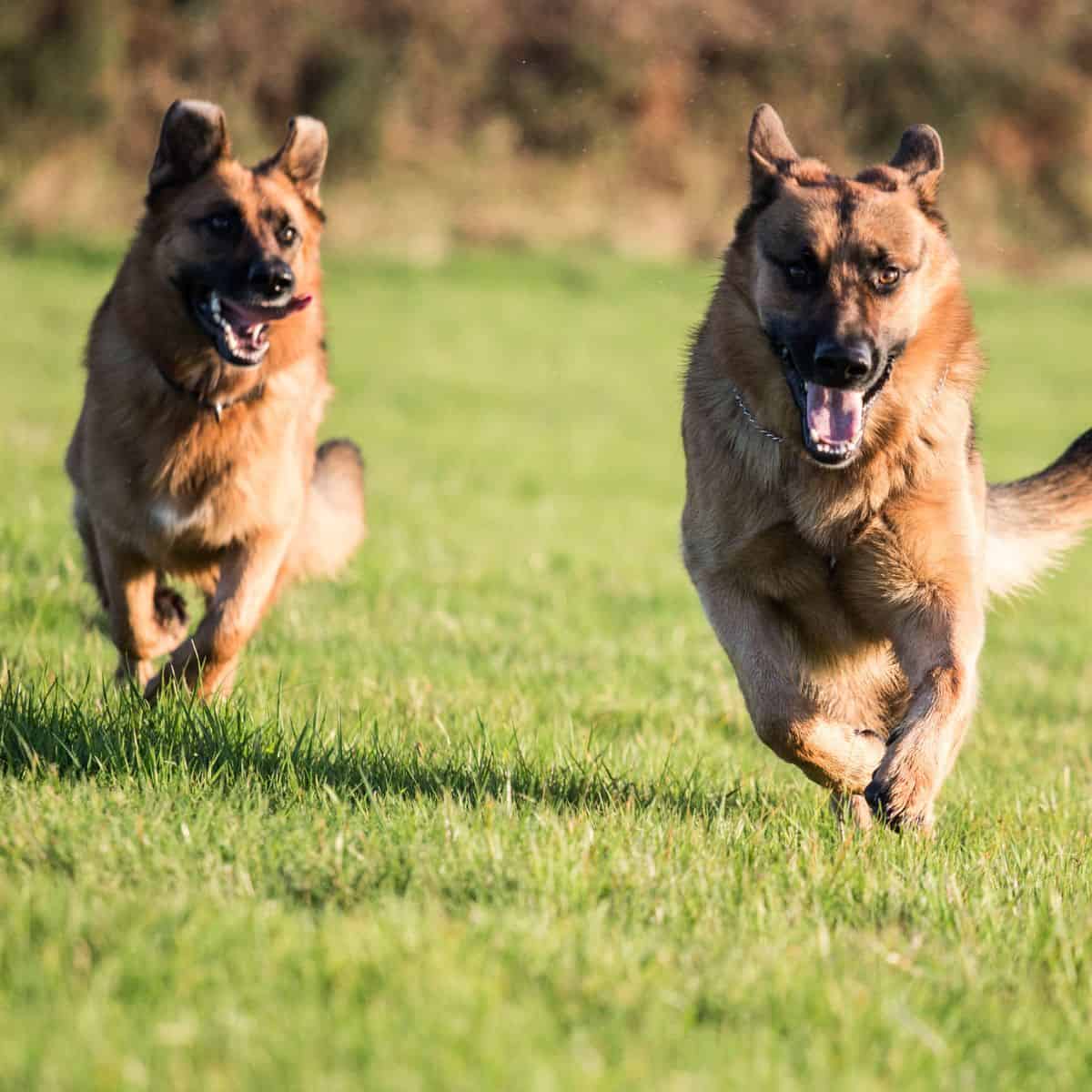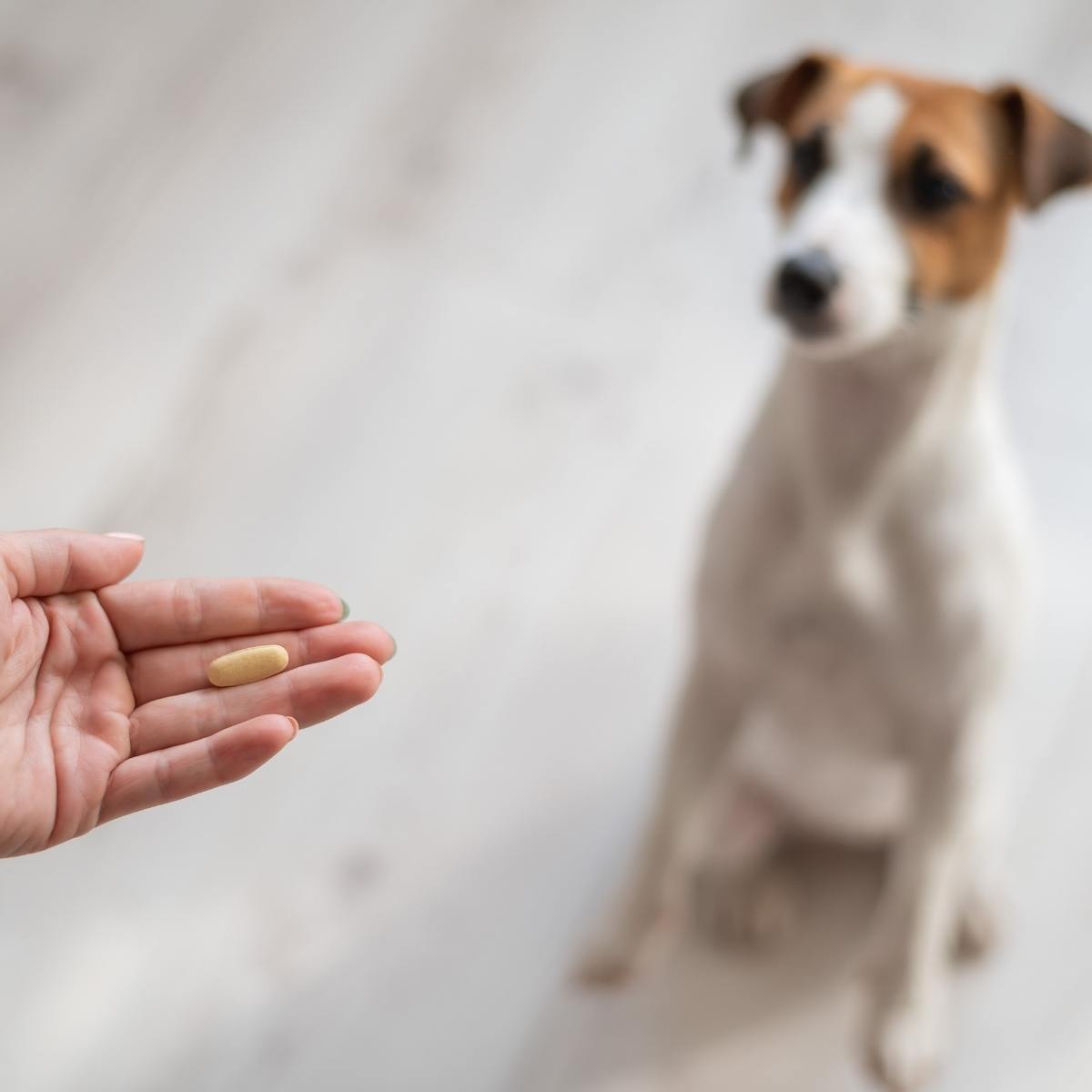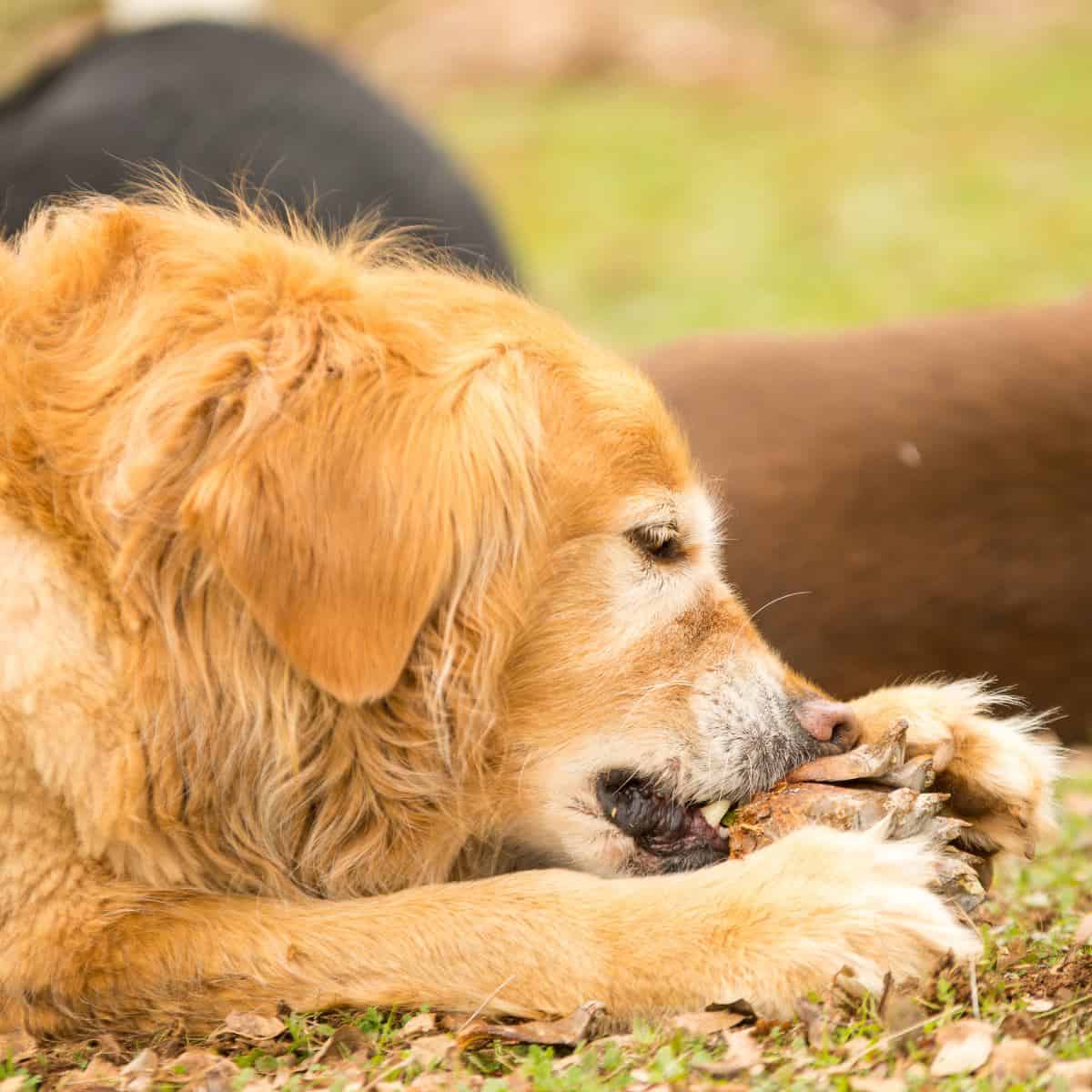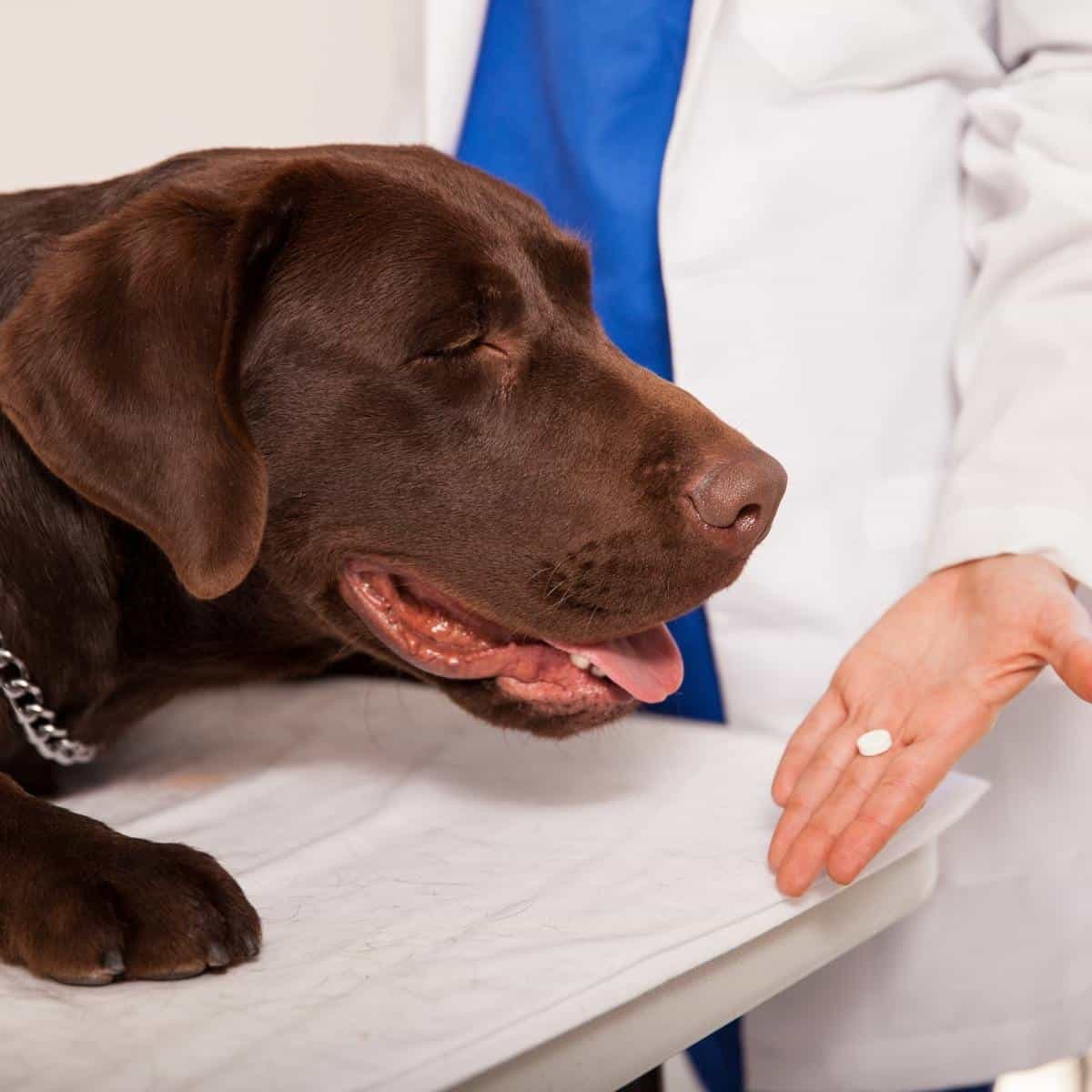Can I Give My Dog Mucinex?
Mucinex can be safe for dogs when given in the correct form, dosage, and when their sickness isn’t coming from another health problem, according to vets. Read through the details before administering Mucinex to your pup.

Mucinex provides relief for those suffering from sinus pain, cold issues, throat phlegm as well as nasal congestion. Dr. Stephanie Flansburg Cruz, a veterinary physician, says that Mucinex is safe for dogs, but only if used appropriately, in the correct dosage, and with the right strength.
Makers of Mucinex offers a variety of medicines that contain different ingredients, and not all are safe for canines. You should also consult with your family veterinarian before administering any medications yourself. Sometimes vets do prescribe human medications to dogs, like cyclobenzaprine, which is a muscle relaxer.
Let’s take a closer look at what Mucinex is made of, safe doses, and side effects that you should be aware of.
Can I Give Mucinex to My Dog for Congestion?
Mucinex contains two active ingredients known as guaifenesin and dextromethorphan, both of which are safe for dogs. The guaifenesin helps to loosen the mucus, while the dextromethorphan is a common cough suppressant that you will find in many other OTC cold medicines.
There are varieties of Mucinex that contain Tylenol (also known as acetaminophen), which should be avoided at all costs as it is toxic for dogs.
When reading certain labels, you may also see Diphenhydramine HCL (an antihistamine) or Phenylephrine. Both of these ingredients are very questionable when it comes to canines and should be avoided as well.
Long story short, when choosing Mucinex for your canine, make sure the only active ingredients are guaifenesin and dextromethorphan.
Can I Give My Dog Mucinex For Kennel Cough?
While Mucinex may help your dog’s cough (a little), this disease is usually in the form of bacteria and/or viruses. That being said, your vet may prescribe an antibiotic to help speed up recovery. Mucinex would just mask those symptoms, so if you suspect kennel cough you should definitely consult with your vet first. If it’s safe, they will disclose the correct dosage and instructions for your pup.
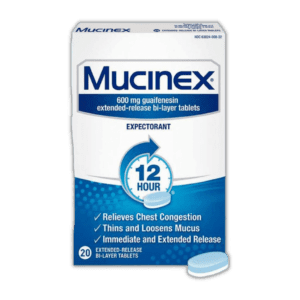
How much Mucinex can I give to my dog?
The normal or average dose is given every 12 hours and should not be administered more than 2 times in a 24-hour window. While the dose depends on the size of your dog, 20 mg per pound is considered safe. We still recommend consulting with your vet first, because they may recommend unique dose instructions that are specifically based on your pup’s health records.
- It’s really important that while they are feeling sick, they stay hydrated. So make sure they are drinking lots of water while taking this OTC medicine.
- Do not use any medication that is labeled maximum strength.
- If you are administering a liquid form of dextromethorphan (such as Robitussin), be very careful that you measure the medication accurately.
Common cold symptoms in Dogs
When your dog has a cold, they may display one or more of the following symptoms:
Runny Nose
Nasal discharge could be a sign your dog has a cold.
Coughing and Phlegm
When a dog coughs up phlegm, it means that it could be suffering from dog pneumonia or dog flu. Pneumonia can be difficult to manage alone, so it’s best to consult your vet before you start any regimen.
Other cold symptoms may include:
- Difficulty breathing
- Fever
- Runny eyes
- Lethargy
- Sneezing
Please know that if your dog is suffering from a condition that is more than the common cold, such as kennel cough, Mucinex is not a proper therapy and should be seen by the vet immediately.
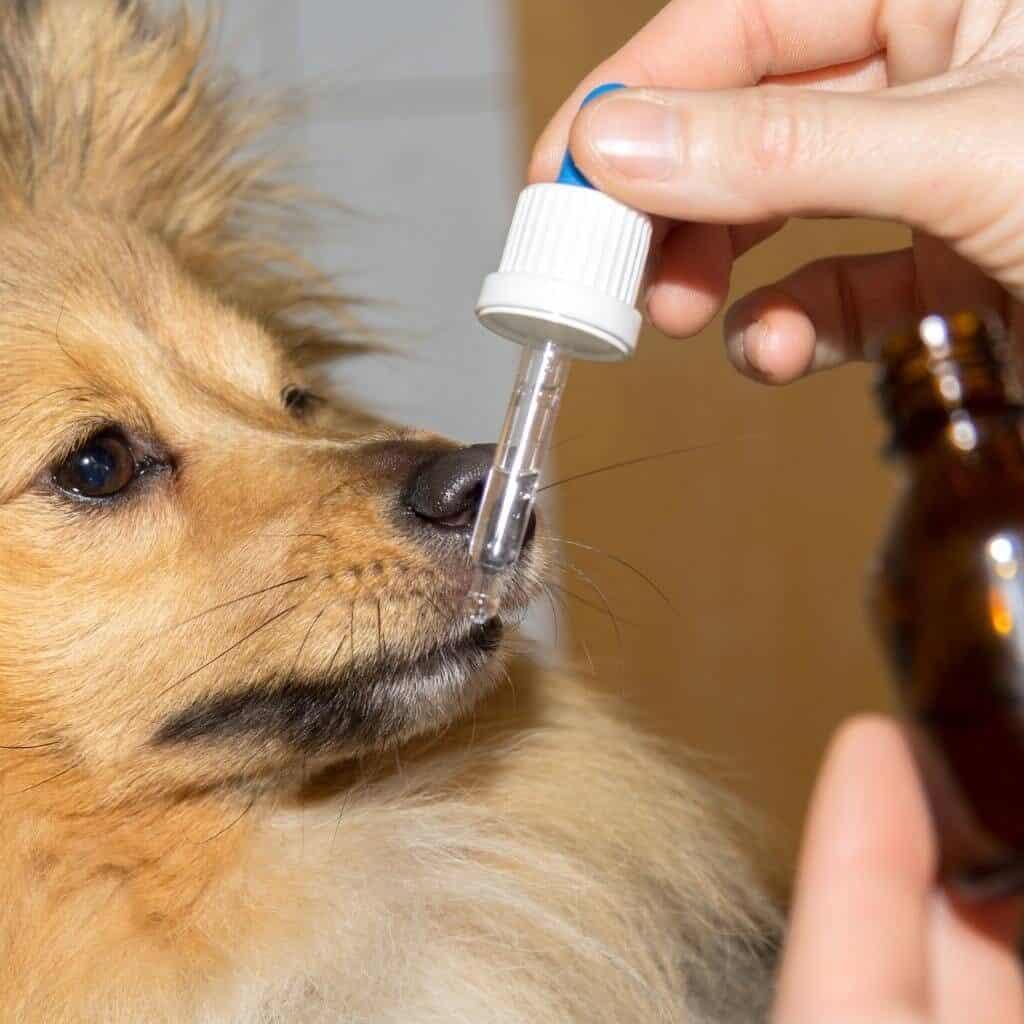
Natural and DIY remedies for Dogs with Colds
Natural remedies can be helpful to reduce cold symptoms in dogs. These can be safer than drugs (when administering yourself), and most of the time you don’t have to worry about side effects.
Hydration
Staying hydrated isn’t just referring to lots of water, warm chicken soup can do the trick as well. The AKC mentions that dogs can have Pedialyte in small doses. That dose really depends on the size of the canine, so it’s best to consult with the vet.
Honey
Honey is a great remedy for dogs with colds. It contains antioxidants, enzymes, and flavonoids that will soothe your pup while providing relief from his symptoms! The amount of honey you feed him depends on several factors including size/age – just be sure not to go overboard. Also, you should never give puppies honey as it may have traces of botulism in it.
Keep their kennel clean
A dog’s environment is the perfect place for germs and bacteria to grow. Make sure it’s cleaned on a daily basis, along with fresh water and cleaning out their food bowls.
Isolation
Colds in dogs as just as contagious as those in humans. If your dog has a cold, try to keep them away from other pets.
Nutrition
While sick pups may not be super hungry, make sure what they are eating is nutritious. Whether it’s dog food or brown rice and chicken.
Supplements
Check with your vet about recommendations for supplements that help support a healthy immune system for when they’re sick and as a preventive..
Use a humidifier
Humidifiers are a great way to keep your dog hydrated and comfortable. Place it inside their kennel or run them a hot water bath; whatever you choose just make sure they stay there for about ten minutes so that the warmth can help ease any nasal congestion.
Rest
Don’t over-exert your pet such as intensive activities or tons of play. We all know rest is the best medicine.

Canine Mucinex Side Effects
With the right variation and dose of Mucinex, your dog should be just fine and go without side effects. However, just like humans, dogs may react differently. Here are some side effects to keep an eye out for.
- Irregular heartbeats
- Decreased blood pressure
- Nausea and/or vomiting
- Drowsiness
- Rashes
- Allergic reaction (Swelling of throat, face, and tongue) – this would be considered an emergency and you should contact your vet immediately.
Takeaway
While Mucinex is relatively safe for dogs when given the proper dosage and variety, you should still reach out to your vet to make sure this regimen is right for your pup. Vet consults are also recommended to determine the correct diagnosis, as it may be more than just a cold.
